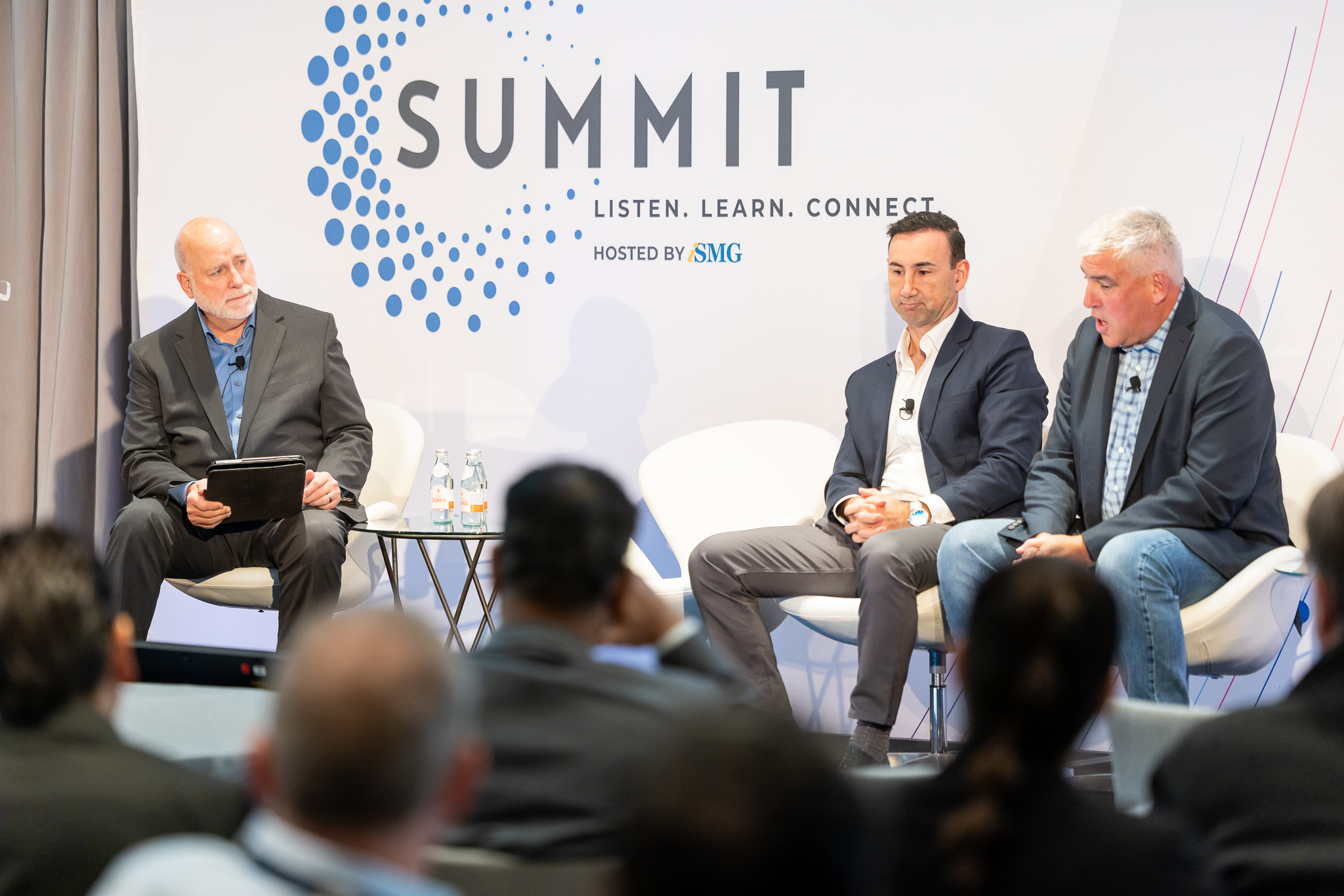Artificial Intelligence & Machine Learning,
Finance & Banking,
Fraud Management & Cybercrime
Cyber Leaders Address AI Threats, Compliance Resilience, Zero Trust

In the ever-changing landscape of cybersecurity, organizations are grappling with the dual pressures of AI-driven fraud and stringent regulatory requirements. Recently, industry leaders converged at the Information Security Media Group’s Fraud Prevention and Financial Services Cybersecurity Summit in New York City. The event spotlighted the urgent need for a dynamic response to both emerging threats and an increasingly compliance-heavy environment.
See Also: AI vs. AI: Leveling the Defense Playing Field
Targeted Discussions: AI and Fraud Challenges
The twin summits delved into pressing challenges across various sectors, especially fintech and healthcare. The Fraud Prevention Summit aimed to enhance identity verification and cross-industry information sharing on fraud. Meanwhile, the Financial Services Cybersecurity Summit dissected the topic “AI in Financial Services: What’s Real?” presented by keynote speaker Moriah Hara, a renowned AI security expert. Her focus on pragmatic AI adoption emphasized the importance of realistic data security measures and a solid governance framework to sidestep the pitfalls of hype-driven decisions.
JPMorgan Chase’s Hardik Mehta supported this sentiment, stressing the significance of aligning AI risk management with evolving regulatory frameworks. This creates a tighter grip on security while enabling innovative scalability within financial environments.
Tom Field, ISMG’s senior vice president for editorial, reflected on the serendipitous back-to-back structure of the summits. “Even with different audiences, many recurring themes emerged,” he noted. The focus on “Agentic AI,” identity security, and threats such as “fraud as a service” highlighted the fast-evolving nature of these discussions, setting a roadmap for what to expect in 2026.
Insights on Fraud and Threat Intelligence
Detective Daniel Alessandrino from the NYPD Special Frauds Squad emphasized the alarming methods employed by fraudsters, notably through social media. Early collaboration with law enforcement emerged as a crucial tactic to mitigate the repercussions of such tactics. Similarly, during the Financial Services Cybersecurity Summit, Amit Basu, CISO at International Seaways, sounded an alarm about the immediacy of AI-generated threats, such as deepfakes and synthetic identities, which pose significant challenges to conventional verification systems.
Innovative Cybersecurity Strategies
Traditional fraud controls are increasingly becoming obsolete. During a panel discussion at the Fraud Summit, Robinhood’s Dan Galeon showcased how automated fraud and credential stuffing have been revolutionized through AI-driven methods. Companies are recognizing the necessity for anomaly detection paired with adaptive authentication. Additionally, Sanjit Ganguli from Zscaler led a compelling session on integrating zero trust architecture with AI to combat the rising complexity of attack surfaces.
Focus on Regulatory Compliance
As cybersecurity becomes a top-tier concern for boards, regulatory compliance took center stage at these summits. Karen Boyer from M&T Bank argued for a strategic pivot—treating fraud not merely as a technical challenge but as a critical business risk. Aligning fraud prevention efforts with overarching business goals can lead to formidable governance frameworks.
Tim Hill of Rocket Software provided attendees with actionable insights into navigating New York State’s 23 NYCRR 500 Compliance, emphasizing the consequences of neglecting to meet regulatory deadlines.
Key Takeaways for Cyber Leaders
- AI is redefining both risks and defenses in the financial sector. While it catalyzes sophisticated threats like spear phishing and synthetic identity fraud, it equally enhances detection and response through automation and segmentation when effectively governed.
- Insider threats and credential-based attacks are surging, necessitating robust AI-driven monitoring systems and a renewed focus on employee awareness and insider threat programs.
- Fraud demands a strategic approach rather than being categorized as a mere technical issue. Incorporating fraud initiatives into broader governance and growth objectives fosters enhanced organizational resilience.
- As regulatory pressure mounts, compliance in cybersecurity is evolving rapidly, emphasizing the need for demonstrable maturity in risk management and supply chain visibility.
- A commitment to a data-first, zero trust framework is essential for resilience. This involves reinforcing security protocols in overlooked areas such as development environments and transitioning to passwordless identities.
Looking ahead, join us at ISMG’s Virtual Cybersecurity Summit: Implications of AI on February 24, 2026, to discover strategic frameworks and best practices to enhance your organization’s security posture.

